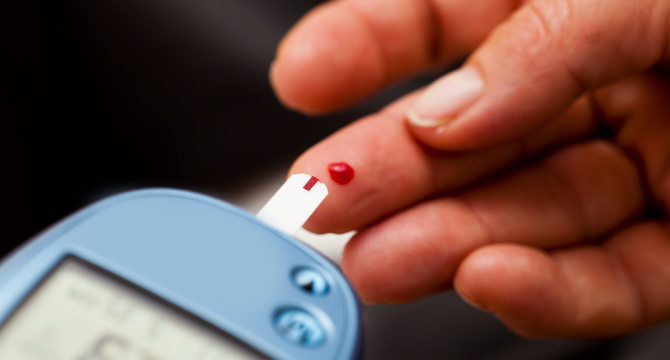Initiative aims to lower heart disease stroke risk among millions with diabetes
By American Heart Association News

During her first pregnancy in 1994, Sophia Boulanger developed gestational diabetes and was later diagnosed with Type 2 diabetes. Then in 2011, Boulanger was told she had 90 percent blockages in all five vessels supplying blood to the heart.
The quintuple bypass surgery that followed was “the scariest moment of my life,” she recalled.
Despite a family history of diabetes, Boulanger wasn’t aware of the added health risks and challenges that could arise, such as heart disease and stroke.

“It is so important to listen to your body,” said the 55-year-old from Memphis, Tennessee. “I was experiencing general symptoms of fatigue, thirst and shortness of breath, but I didn’t take immediate action to address those signs with my doctor. My hope is for others to hear my story and learn from it.”
Today, Boulanger works closely with her endocrinologist and cardiologist to stay healthy. She has also partnered with the American Diabetes Association and American Heart Association to share her story as part of a new initiative launching Friday that aims to help people with Type 2 diabetes reduce their risk of disability and death from heart attacks, strokes and other cardiovascular problems.
More than 30 million Americans have diabetes, including about 7.2 million who don’t know they have it, according to statistics from the ADA and AHA. Moreover, another 84.1 million U.S. adults have prediabetes. Adults with diabetes are two to four times more likely to have heart disease than people without diabetes.
“Diabetes is a significant threat to the cardiovascular health of many Americans,” AHA chief executive officer Nancy Brown said in a news release. “As we work toward our goal to improve Americans’ health, this collaboration aims to unite the health care community with a comprehensive approach to caring for, educating, treating and empowering patients with diabetes to improve their cardiovascular health and their quality of life.”
The two nonprofits say the collaboration is designed to educate the public about the critical link between diabetes and cardiovascular disease, and to educate patients, train health care providers and support quality improvement measures for clinics and hospitals treating people with diabetes.
“Unfortunately, a common theme I find among my patients with diabetes is an overall lack of awareness for the connection between diabetes and cardiovascular disease,” said endocrinologist Dr. Robert Eckel, a member of the ADA board of directors and a past AHA president.
Diabetes increases a person’s risk for many serious health problems, posing further challenges for managing diabetes.
“The added risk of heart disease needs to be communicated and then actively prevented or treated,” Eckel said.
The initiative is being supported by founding sponsors Boehringer Ingelheim, Eli Lilly and Company and Novo Nordisk, with Sanofi providing additional support as a national sponsor.
If you have questions or comments about this story, please email [email protected].





